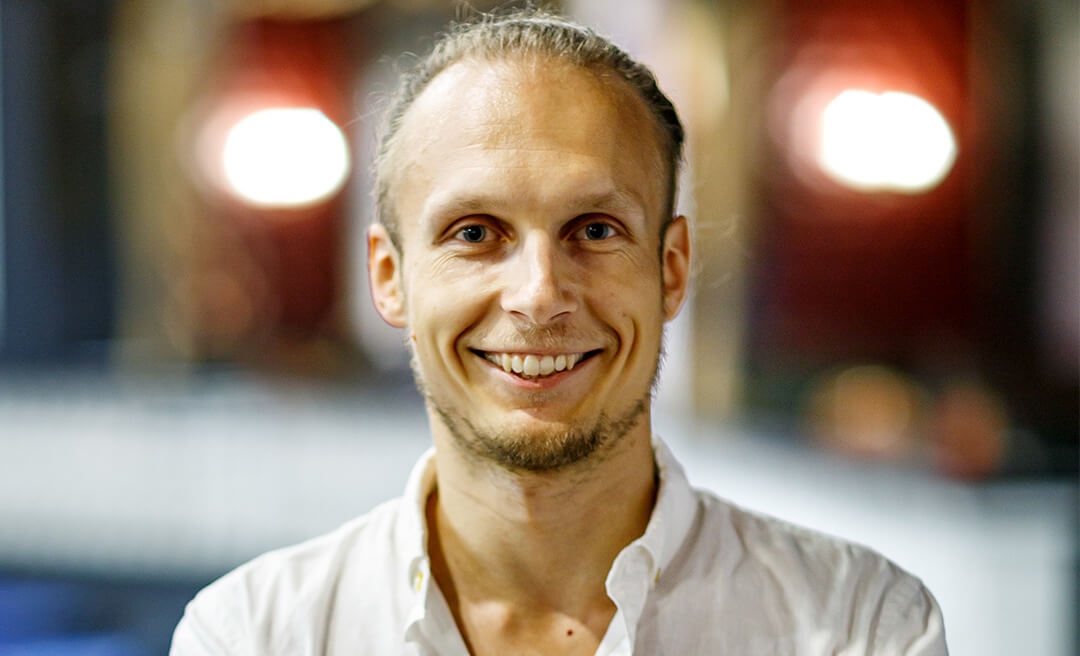10 things beginner startups don't need to do
Don't listen to experts on non-core issues, don't hide your idea from potential theft, and do your development last. CEO and founder of the startup Govar, Denis Yatsenko, wrote to Anywhere Club in our feedback form, shared his experience of launching a startup, and identified startup mistakes that you can avoid. We are waiting for your stories!

— In the autumn of 2021, I went to English conversation clubs offline. These clubs have several interrelated disadvantages: the schedule is often inconvenient; you have to spend time on the road; and there is not always a group. If you live in a small town or a district center, there may not be such a club at all. So, the idea was born to make our own conversation club, but on a larger scale: an online format for group meetings with free access and a choice of topics, including professional ones. That's how Govar came into being. It’s an app for the free practice of spoken English, where you can find people at your level of English from different countries.
10 things NOT to do when launching a startup
— I had worked in marketing for educational projects for several years before creating my startup, but I still could not avoid making mistakes. There was a lot of information on startups available, but it was scattered in different places and did not line up in a single system. Then, I heard about the startup incubator ZBORKA LABS and joined their community. Having created a startup, and having seen how others go about doing so, I can tell you exactly what NOT to do:
- Do your development last. In fact, development is the last thing you should do. If you don't develop exactly what the market needs, a lot of resources will be wasted, and your team will lose motivation.
- Listen to "experts" on issues that are not core to them. An experienced developer may have strong ideas about marketing. But this is not his area of expertise, and it is far from certain that his ideas will be useful (and worse, they may actually be harmful).
- Ignore constructive criticism. Criticisms may be based on feelings, or they may be based on facts and figures. Facts and figures should always be considered, regardless of who provides them or how.
- Be afraid of uncomfortable questions. No one enjoys criticism or being presented with questions for which they don’t yet have answers. But this is a huge growth opportunity through which the answers to these challenging questions will emerge.
- Be afraid to ask questions lest you seem stupid. You can spend several weeks to solve problems and complete tasks, or you can ask advice from those who have already done it and find a solution in a couple of days. But don’t forget that it is important to ask the professionals questions that are within their area of expertise.
- Ignore the startup community. Other founders have probably already solved most of the problems you will encounter. Their experience will be very valuable to you, saving time, effort, and money. Check out Ū Hub and Mesto.co, for example.
- Fear "killing" your idea. First, not every idea is a winner, and you get a tremendous amount of experience from any startup action that you will be able to use next time. Second, quickly killing an idea that is not viable saves a huge amount of resources.
- Don't communicate with users. Early and active users are a treasure trove of useful information. The bottom line is that we make a product for them, so we are always very interested in their opinions.
- Hide the idea, so that it is not stolen. I remember when I was afraid to voice an idea because I thought it would be stolen. It is important to realize that no genius idea is worth anything without implementation. Voicing your idea allows you to get feedback, advice, and support from those who hear it and to refine your idea as you move forward with it.
- Create a startup in any area, even if it doesn’t interest you, and feel free to do so without financial reserves. In several startup communities, I’ve heard the opinion that you should initially set yourself up and prepare for six months to a year of no profit. Doing something you don't like and aren't interested in, for free, for such an extended period, will be difficult. And without a safety cushion, the project will develop on the residual principle — meaning that you will work on it in whatever time you have left after you earn the money necessary to support yourself — so the time between your good idea and its realization will drag on even longer.
Tips for aspiring startups
— First and foremost, never give up and abandon your idea. Networking and advice from professionals will help you act more effectively. Ideally, you should try to use other people's experience so that you don’t have to “reinvent the wheel” and make the same mistakes they did. And don't forget about testing and analytics: there is nothing better for decision-making than figures that confirm or refute your hypotheses.
Got an idea for a startup? Go to Discord to discuss and look for a team.

.png)
